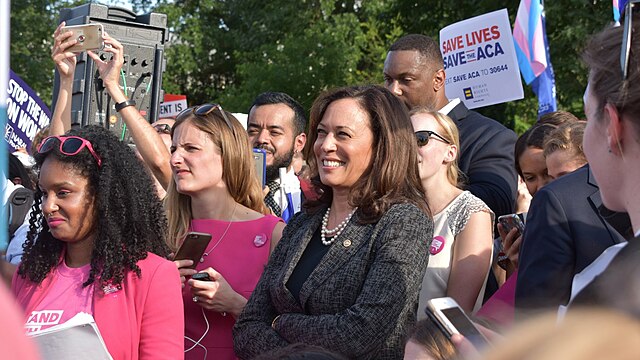“America is back,” said President Obama last Tuesday in his State of the Union address. Ironically, Obama was echoing Republican Ronald Reagan’s “Morning in America” campaign for re-election in 1984. “We’ve come too far to turn back now.”
The president pointed to three months of solid job growth and a recovering auto industry. This theme of optimism in America’s recovery dovetailed with a combative call for restoring fairness to the American economy, specifically in regards to tax policy.
This populist focus on economic justice promises to recapture many voters who have soured on Obama’s stewardship of the economy, and perhaps help him keep the White House.
The problem is we’ve seen this before. The president walks up to the podium and lays out the agenda that a solid majority of the voting public elected him on three and a half years ago — and according to most polls still support. He then proceeds to water it down to get the support of a die-hard Republican opposition that never materializes.
In reality, this opposition’s goal, according to its leader in the Senate, is to make Obama a one-term president, not to join a bipartisan effort to confront the economic crisis that plagues the working and middle classes of this country.
Aside from remarks that bookended the speech, reminding voters that it was his administration that took out Osama Bin Laden, the dominant theme of the night was how to restore fairness in the American economic system. The president’s tone was refreshingly scrappy as he vowed to fight obstruction and oppose efforts to return to Bush-era polices that he blamed for the crisis.
Obama’s calls for higher taxes on the wealthy have ignited claims of class warfare from the Republicans. They argue that the deficit is the biggest problem facing our nation, after ignoring how it exploded under George W. Bush.
Republicans have done a superb job of concealing from voters that a primary source of the deficit was the loss of revenue resulting from tax cuts on the upper–income brackets passed in the early 2000’s.
Obama preemptively responded to Republican criticisms.
“Now, you can call this class warfare all you want,” he said. “But asking a billionaire to pay at least as much as his secretary in taxes? Most Americans would call that common sense.”
One can hope that the president’s combative tone in the speech marks a permanent shift in his political strategy. According to a recent poll conducted by the Washington Post, independent voters have started trickling back to the president in recent weeks. This is perhaps in part a response to a nasty Republican primary season, but also a result of the game of political chicken played last month surrounding the payroll tax-cut extension. Democrats won the debate by portraying Republicans as indifferent to the needs of the middle class.
The lesson is that when Democrats play the “class warfare” game, they win. With unemployment still depressingly high, the election promises to be a tight one. Portraying Republicans as defenders of tax breaks for individuals who resemble Mr. Monopoly while Grandma’s Social Security check continues to be cut and Pell grants continue to be slashed might be the only recipe for warding off a President Romney.
Incidentally, the president made his call for tax fairness the day Governor Romney finally, begrudgingly, released the amount of taxes he paid last year after a barrage of criticism for his defensive stalling — some from his own party. The percentage he paid on $45.2 million? 13.9 percent.
The president played the populist card in his speech and tried to convince the “99 percent” that he, not the Republicans, was on their side. It will be interesting to see if he keeps this rhetoric up in the coming weeks and months. If he can indeed convince them, he may just win a second term.





